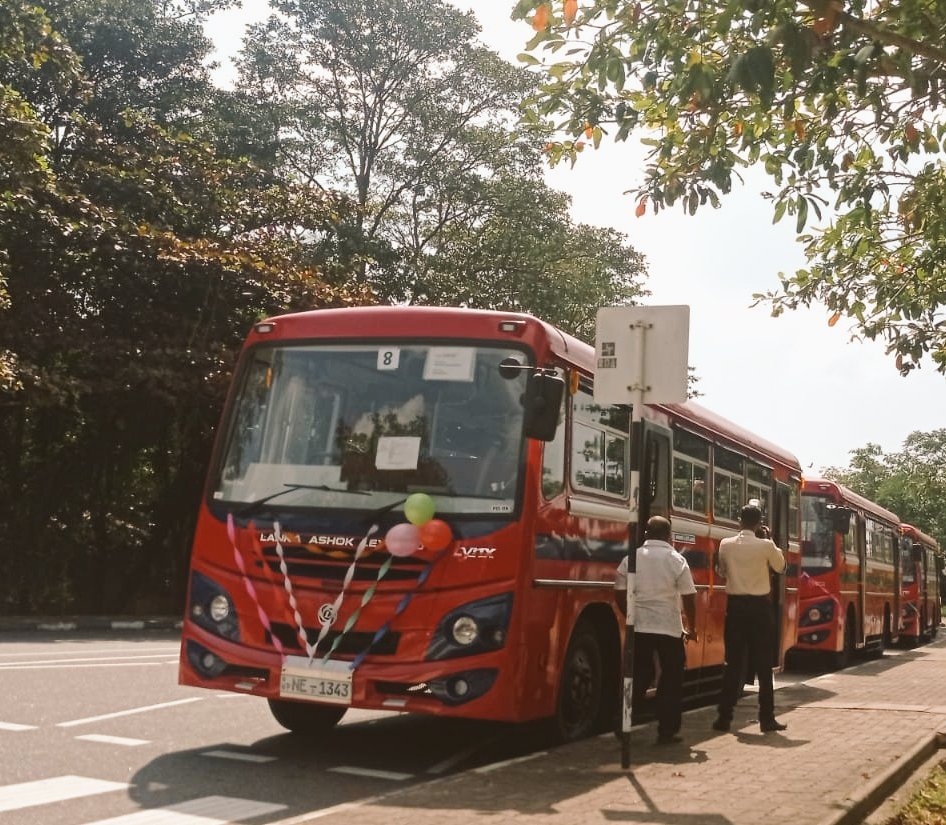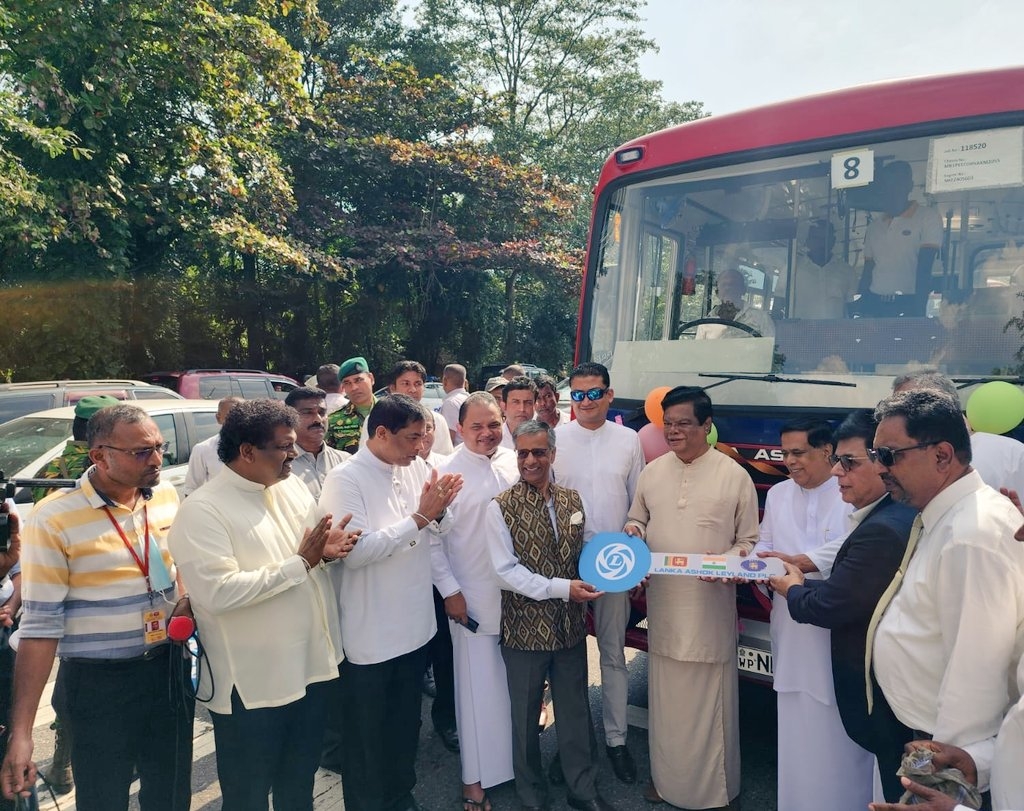Indian High Commissioner to Sri Lanka Gopal Baglay ceremoniously handed over the fleet of buses that would join the public transport system of the country….reports Susitha Fernando
India has handed over 75 out of 500 buses to Sri Lanka to ease jam-packed public transport mainly due to the on-going fuel and economic crisis in the island nation.
Indian High Commissioner to Sri Lanka Gopal Baglay ceremoniously handed over the fleet of buses that would join the public transport system of the country.
“Supporting mobility and accessibility in #SriLanka !!! High Commissioner handed over 75 buses to Minister for use by Transport Board. 500 buses are being supplied to #lka through #Indian assistance towards strengthening public transport infrastructure,” Indian High Commission in Colombo tweeted on Sunday.
Seventy-five new buses built by Ashok Leyland were given to Sri Lanka to mark the island nation’s 75th Independence Day on February 4, 2023. Another 425 buses are to join state-run Sri Lanka Transport Board (SLTB) in 2023.
Sri Lanka Transport and Highway Minister Bandula Gunawardena said that 75 buses which were obtained under the Indian credit line have been manufactured to suit the condition of roads at village level.

“These buses have been allocated to depots representing every region of the country including the North and the East. In 2023, we have planned to put 500 new buses into operation by end of this year,” Minister said.
Facing the worst-ever economic crisis, many Sri Lankans, who used private transport modes, have shifted to public transport mainly buses as fuel prices have doubled or tripled and given on quota.
In June last year, the entire country had to be closed down with all government offices and schools shutting down for two weeks as public transport came to a grinding halt due to lack of fuel.
Unable to afford high cost for fuel given on weekly ration basis, majority of people turned to public transport-specially the jam-packed trains and buses.

Leave a Reply